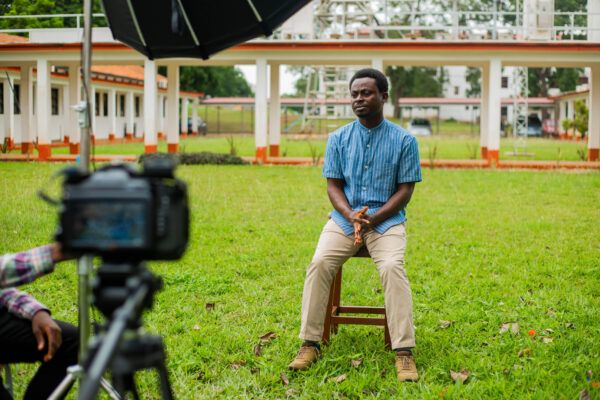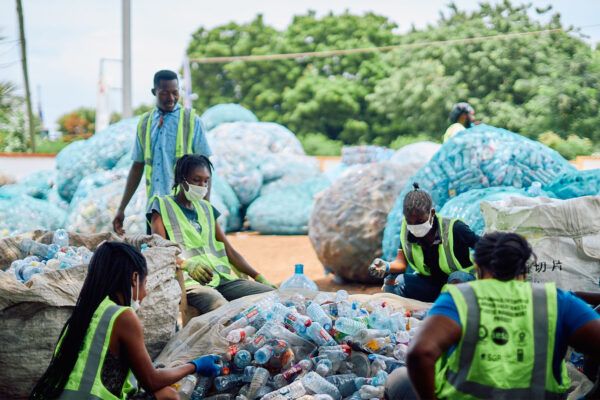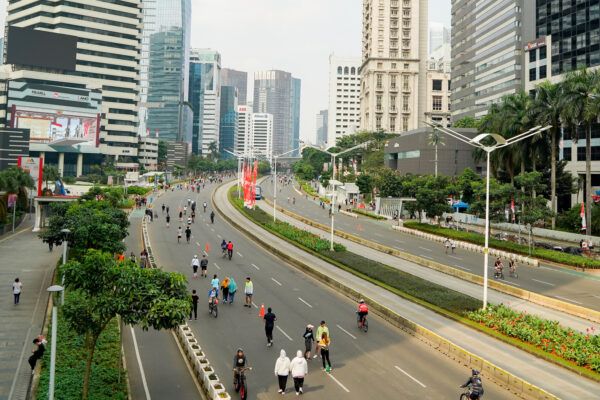Why is waste burning bad for health and climate?
Waste burning is one of the largest sources of air pollution in many low- and middle-income countries. Open waste burning is a common way people dispose of their household rubbish. In areas that aren’t served by regular formal waste collection services, piles of mixed waste — plastics, organics and electronics — are often set alight to keep spaces clean.
Waste is also burned in incineration facilities called waste-to-energy plants, polluting the air. Many of these plants are located where communities live, work and go to school.
Burning waste spews toxic air pollutants into the atmosphere – such as black carbon, a short-lived climate pollutant that is more potent for global warming than carbon dioxide per tonne. Meanwhile, decomposing waste in landfills emits methane, another potent greenhouse gas that drives global warming.
The health toll of air pollution is huge: higher rates of respiratory illness, asthma and cardiovascular disease, especially among children, elder people and those living in poverty. 9 out of 10 deaths attributed to outdoor air pollution are in low- and middle-income countries.
Through our grants, Clean Air Fund supports inspiring people across the globe fighting for clean air. Watch the video below to learn more about the impact of grassroots action on waste management. You can also read more about the three projects spotlighted in the video further down.
1. Leading zero-waste community programmes in Ghana
In Accra, the Green Africa Youth Organization’s (GAYO) Zero Waste Accra project diverts waste from being burned or ending up in landfills by integrating informal waste pickers into the city’s waste system.
Through neighbourhood collection points, recycling facilities and small-scale composting, GAYO prevents organic, plastic and electronic waste from reaching landfills or being burned. More than 500 informal workers now provide affordable waste disposal services in communities that previously had none.
This zero-waste model prevents air pollution from burning, curbs methane production, reduces greenhouse gas emissions and stops microplastics from leaking into the environment. It also provides employment to waste pickers and informal workers. By integrating these workers into Accra’s waste management architecture, the project ensures formalised waste companies are not in competition with the informal sector.
When people see waste these days, they don’t just see something that has to be burnt or thrown away. They see an opportunity to create more work for people. And that’s the essence of the work that we do here at GAYO. Having people know that they are environmental frontliners, as it were, contributing to climate action and ensuring that we preserve the environment.
Jacob Johnson Attakpah, Project Manager at GAYO
By engaging with communities, GAYO has seen less burning in neighbourhoods and a change in residents’ behaviours towards waste. The initiative is now looking to scale across Ghana and Africa.
2. Volunteers expose the impacts of waste burning in Indonesia
In the Indonesian city of Surabaya, residents living near the Benowo waste-to-energy incinerator plant noticed thick smoke hanging over their neighbourhoods. The Indonesian Environmental Forum (WALHI) supported community volunteers to track pollution levels by equipping them with wearable air quality monitors.
The portable air sensors showed that particulate matter (PM2.5) pollution levels were up to eight times higher than World Health Organization guidelines. Over 31 days, not a single day of “healthy air” was recorded during the monitoring period.
By collecting their own data, residents revealed the health risks of incineration, particularly for children and older people in nearby schools and retirement homes. The findings informed a citizen-science study by the Global Alliance for Incinerator Alternatives (GAIA)
We’re urging bottom-up waste governance. Our zero waste ambassadors live in the communities they serve, working with people every day to reduce waste and protect their health. Aside from disclosing information and urging public participation, policymakers must also prioritise long-term policies and solve the root cause of the problems, so these policies won’t be implemented top-down.
Wahyu Eka Styawan, Executive Director at WALHI East Java
WALHI’s community researchers are advocating for data transparency from authorities, as well as policies that focus on waste reduction, reuse and recycling instead of burning.
3. Waste pickers leading the way in South Africa
In South Africa’s Vaal Triangle — one of the country’s air quality “priority areas” — many low-income households still burn their waste due to inadequate formal waste services. Waste pickers, who are often women, work informally to provide recycling services to these communities, diverting waste from being burned or decomposing in a landfill.
The South African Waste Pickers Association (SAWPA) supports waste pickers and communities by turning schools and neighbourhoods into hubs of awareness and action. Waste pickers are engaging with students and residents to educate them about recycling, composting and the health risks of burning.
Because of the waste pickers, who were recycling every single day, the landfill has a longer life. And that is why we know we are important as waste pickers. We are important to people’s lives because we are the ones who collect their waste.
Mantwa Mokwena, Waste Picker at SAWPA
In partnership with groundWork, the waste pickers will also start collecting data on burning incidents to inform targeted interventions and provide evidence for advocacy. The project is also raising the profile of waste pickers as essential environmental workers that deserve official employment recognition from the government.


